Meet Nicole Mitten, a registered social worker, integrative counsellor and postpartum support professional. Describe yourself in 3-worded Sentences...
1 Comment
Meet Melissa Jeffreys, manual osteopath, at Vivo! in downtown Galt, Cambridge ON. Melissa is a compassionate and integrative manual osteopath, she uses hands on techniques to reduce pain, increase range of motion and return the body back to pain-free and optimal functioning. Her goal is to "move" you in a healthy direction Describe yourself in three-worded sentences...
Hardworking, compassionate individual. Passionate about health/wellness. A big foodie. Describe your role as an osteopath. As an osteopath, I gather a detailed health history, assess the way your body moves and analyze connections between the bony framework (affected by muscles/fascia) and the symptoms you present with. At each visit, I reassess/monitor your mind-body changes to ensure that treatment is progressing well and you are indeed improving. Osteopaths facilitate the natural healing capabilities of the body. It is my goal to help everyone reach a point where they no longer depend on treatment, they are fully functional and they understand their bodies better including how to help themselves. Top 5 most treated health concerns/goals in the past month? Low back injuries (i.e. Lumbar disc herniations) Migraines Pain due to arthritic changes Sciatic nerve pain (true & pseudo-sciatica) Stress induced pain/issues Most common or most favourite health concern and why? One of my favourite health concerns (and also one of the most common complaint amongst all demographics) is SLEEP issues. This is a favourite health concern because:
What are 3 future aspirations? 1. Become a mountaineer and travel the world hiking and climbing tall peaks to see incredible views 2. Create my own charitable organization providing competitive athletic training to inner-city kids who are unable to afford it, with the hopes of allowing them to develop skills and values through sport and giving them the opportunity to excel in something they love. 3. Improve my photography skills, take amazing shots of nature/life in different countries How has your education or past experiences contributed to your clinical skills? Throughout my whole life, I have been heavily involved in competitive sports and with this comes the inevitable risk of injury. My interest in the human body began with my personal experiences of repetitive traumas from sports. I spent so much time getting treated and going through the rehabilitation process, needing cortisone shots and braces, etc. I have experienced many different issues because I played many sports. I am grateful to have had these experiences because I understand the frustrations of trying to heal and trying to heal with a deadline ahead. I also understand the different types of pain patients are experiencing. These experiences allow me to empathize with patients and connect on a different level. These experiences also led me to Kinesiology, which is the study of human movement. I attended my undergrad at Laurier - part of what makes Laurier so great is the emphasis on community involvement/volunteering. For my program I was required to volunteer with a number of different organizations (outside of classroom requirements) to complete my education. This allowed me to gain clinical experience in athletic therapy and physiotherapy clinics, experience coaching and training young athletes. Real learning occurs with hands on experiences and I have gained many different perspectives on injuries and healing through these opportunities, as well as the patient interaction which is invaluable. Are you accepting new patients? Yes – I would be happy to be of support! For treatment bookings or to gain more information, contact Vivo! (519-267-8486) or email Melissa at melissa.osteopathy@gmail.com or phone 905-746-9330 Meet Renata Adamczyk, manual osteopath, at Vivo! in downtown Galt, Cambridge ON. Renata is a compassionate integrative manual osteopath, she uses hands on techniques to reduce pain, increase range of motion and return the body back to pain-free and optimal functioning. Her goal is to "move" you in a healthy direction. Describe yourself in three-worded sentences...
Kind hearted soul. Determined to grow. Strong and independent. Describe your role as a manual osteopath... To help clients restore balance in their body, relieving them of pain and symptoms. To educate and help clients live a healthier life leading to a preventive and proactive approach to their own health. Top 5 most treated health concerns/goals in the past month Sore neck. Knee pain. Plantar fasciitis. Chronic shoulder pain. Low back pain Most common or most favourite health concern and why? Plantar fasciitis or general foot pain because I have lived with it while playing basketball competitively and can relate, having many foot injuries! What are 3 future aspirations? Climb a mountain in the Himalayas. Write a book. Find a house in the country. How has your education or past experiences contributed to your clinical skills? I have always been interested in how the body can heal itself and healthy living. I started in high school reading books on fitness, nutrition and took my first health course outside of school studying Reiki. I continued with learning about the body studying kinesiology at university followed by a diploma in manual osteopathy. My past experiences as an athlete playing basketball at the professional level followed by a few amateur Muay Thai bouts have taught me a lot about training, nutrition, injuries and I can relate to spending many hours in the therapy room. Are you accepting new patients? Absolutely! Look forward to meeting you. For treatment bookings or to gain more information, contact Vivo! (519-267-8486) or email Renata at renata.osteopathy@gmail.com Naturopathic Doctor + Birth Doula = Naturopathic Birth Doula This year, I have had the privilege to attend a February birth (the couple's 1st baby delivered in the hospital) and a March birth (the couple's 3rd baby delivered at home). Each labour and birth experience were unique, beautiful and natural. As a "naturopathic birth doula", I optimize a mother’s health in the months approaching birth and minimizes discomfort and stress at the time of birth. This gentle integration of “doula and doctor” allows me to support, empower and treat with naturopathic therapies. Essentially, the services include the physical, mental, emotional care of a doula and the natural health expertise of a naturopathic doctor.
[Note, doulas and/or naturopathic birth doulas do not replace the role of your OBGYN, midwife or your partner - we become an additional professional support system] According to DONA international (an organization that trains and certifies doula), a doula is now defined as "a trained professional who provides continuous physical, emotional, and informational support to a mother before, during, and shortly after childbirth to help her achieve the healthiest, most satisfying birth experience possible". (1) Research show that a birth doula can support women in home or hospital births to...
With a passion for prenatal and perinatal health, I have combined my doula training and naturopathic skill set to support patients in a positive pregnancy and birth experience. This was a natural direction for me. With this integration, the expected outcomes are:
To gain an understanding about general visits entitled to the Naturoapthic Birth Services, I invite you to visit the link http://www.vivoinhealth.com/naturopathic-birth-doula.html. If any inquiries, connect with Vivo! (519.267.8486) or email myself at amy@vivoinhealth.com To living in health and comfortable birthing, Dr. Amy de Oliveira, Naturopathic Doctor Women's & Family Natural Health Expert References: (1) (2) DONA International, https://www.dona.org/, found under "what's a doula" Essential oils are all the rage these days – and for good reason! Aromatherapy is an ancient practice with modern applications that are effective and inexpensive. But if you don’t want billowing aroma accompanying you everywhere you go, can you still use essential oils? Can you treat basic health concerns naturally without getting lost in the alternative-healthcare world of kombucha, bee pollen and spirulina? The answer is yes, my friends. And it’s not as tricky (or witch-crafty) as you may think.
Essential oils are highly concentrated liquids extracted from various plants. If you buy from a trustworthy source, they are pure and free from pesticides and other chemicals. They are grown, harvested, and processed in ethical ways. And they work by reintroducing and replenishing plant metabolites that our bodies are severely lacking in this day and age. Each individual oil has a variety of therapeutic properties. A single oil can be anti-fungal, anti-inflammatory, antiviral, bactericidal, and analgesic. There are dozens of therapeutic properties, and hundreds of essential oils, so the possibilities really are endless. Using essential oils can be as simple as taking a deep inhalation right from the open bottle. When you breathe in the aroma, you get the oil molecules into your lungs (and from there, into your bloodstream to be carried throughout the body) and into your brain (and from there, into your nervous system to be carried throughout the body). With just a couple of deep breaths, you get a double-shot of all those therapeutic properties. To take it a step further, you can use a diffuser. This is a small appliance that uses a fan or a fine mist to circulate the oil molecules in the air. This way of breathing the oils in is ideal for providing benefits to multiple people, or for having a consistent flow over a longer period of time (throughout the day or overnight). Another easy way to use essential oils is to apply them topically. The skin is the largest organ of the body, and oils absorb easily into it, allowing for quick access to the bloodstream. Oils can be applied on specific areas if you’re treating localized pain or infection (on the abdomen for menstrual cramps or directly on an infected cut, for example). Or they can be dabbed on the base of the skull or along the spine to, again, get those molecules into the nervous system. The easiest go-to spot for applying oils is the bottoms of the feet. Even if you’re treating a headache, the oils are quickly absorbed and travel through the body to where they need to go. Another benefit of applying the oils on the feet is that it greatly reduces the aroma that you may not necessarily want wafting around your face all day! When using essential oils topically, it is recommended to dilute them – which is beneficial in more than one way. First, it makes your product go further, thereby reducing cost. And it also makes them more effective (spreading the oil molecules out makes them work harder). A basic rule of thumb for an adult-strength dilution is to use one drop of essential oil for every millilitre of carrier oil. Therefore, if you have a tablespoon of carrier oil (coconut, jojoba, grapeseed, olive…), that’s 15 ml, so you would add 15 drops of essential oil(s). Blending more than one essential oil together makes them even more effective, so you could do five drops each of three different oils. Internal use is not recommended by Health Canada or the Canadian Federation of Aromatherapists, despite what many of the international essential oil brands say. Some oils can build up in your filtering organs and do long-term damage. Some oils are too strong for your delicate internal membranes. And ingestion isn’t even as effective as aromatic or topical use! A few great oils to start with are lavender, peppermint, lemon, and tea tree. Those four cover a broad spectrum of therapeutic uses and they are easy to experiment with. They are also readily and inexpensively available in many health food stores and some pharmacies. So go pick some up and give them a try. It’s not hard to start incorporating this alternative healthcare practice into your normal lifestyle. Anita Neuman, CAHP, is a Certified Aromatherapy Health Professional with her own line of essential oils. She is the newest member of the Vivo! health team at Vivo! Naturopathic & Wellness Centre in downtown Galt, Cambridge ON. For more information about Anita, her products, or how to use essential oils, visit www.aperia.ca or vivoinhealth.com (519-267-8486). Meet Dr. Amy de Oliveira, Naturopathic Doctor at Vivo! in downtown Galt, Cambridge ON. Dr. Amy supports patients to transition into better health naturally so they can be the best version of themselves. She believes that when people are their best self, they can achieve far greater - limits are surpassed and the world benefits small and large. Describe yourself in three-worded sentences...
I'm a minimalist. I adore elephants. I investigate health. Anticipating a family. World traveler. Describe your role as a naturopath... Naturopathic doctor is the general term used and refers to a health practitioner who supports your "innate" healing ability of your body and addresses the underlying cause of your symptoms in order to restore, improve, maintain health. In lighter terms, I often refer to myself and my purpose as a health detective; a transformational health coach; a health cheerleader; an in-depth no-nonsense opinion and a privileged soul who enters softly into people's health story and life. What are your top 5 most treated health concerns/goals in the past month? Burnout. Everything hormones. Pregnancy care. Pediatric colds. Digestion. Your most common or most favourite health concern and why? Everything hormones! Hormones are like a different language - a secret code that requires hours of inspired learning. Once you can speak that language, understanding and treating hormonal imbalances can be simplified and supportive steps can be outlined clearly. The goal is to support patients to achieve balance and to feel like themselves again, like they can love their hormones again. In terms of "everything hormones", what are some examples of hormone cases? 1. Burnout - a feeling that you just can't manage anymore, lacking that pep in your step. 2. Weight loss - hormones can absolutely dictate where fat "sits" on your body. 3. Sluggish thyroid - blood work might show "normal" but your symptoms say differently. 4. Fertility - zooming in on how your hormones "work" and optimizing conception What are 3 future aspirations? To live in a yurt or tiny home (unfortunately, the husband is not on board...yet) To team up with midwifery clinics/patients. To have a family and health practice...and maintain an ebb and flow of balance How has your education or past experiences contributed to your clinical skills? When I review patient cases or brainstorm steps to healing, my automatic thoughts have always been natural health solutions first. I am wired to think naturopathically - due to the fact that I was raised in a holistic world where my primary care giver was a naturopath and my mother was a naturopath at heart. We also lived on a small self-succifient farm and the laws of nature were understood/respected. With being naturopathically-wired, any continuing education courses/conferences are my "wood to my fire". Are you accepting new patients? Yes, absolutely! I would be happy to be of support to you (and the people you love). For treatment bookings or to gain more information, contact Vivo! (519-267-8486) or email Dr. Amy at amy@vivoinhealth.com Meet Melissa Kennedy, Manual Osteopath at Vivo! in downtown Galt, Cambridge ON. Melissa is praised constantly for her hands-on osteopathic treatments which provide countless benefits such as pain reduction/pain relief, improved range of motion, body re-alignment and whole body health & healing. Not only is she a gifted practitioner, she offers realistic and down-to-earth treatment protocols and inspiring guidance. Getting Personal with Melissa:
Describe yourself in a few "three-worded sentences" I am innovated. I work collaboratively. I’m hard working. I enjoy nature. I love animals. I’m an introvert. Reading relaxes me. I love learning. I am amenable. I am candid. I love sci-fi. Describe your role as an osteopath My role as an osteopath is to bring back a quality of life that the patient thought had been lost. A return to health, to life. What are your "top" most treated health concerns/goals in the past month
Your most common or most favourite health concern and why? The most common health concern I see in the office is lower back pain. However, my most favourite thing to treat is stress. I enjoy treating stress because it allows me to use counseling in addition to the hands-on treatment . It takes work to build enough rapport with a client for them to feel comfortable to be open with you. When they finally do feel credulous, the release of emotions is enough to rejuvenate not just the mind but the body as well! What are 3 future aspirations? - To narrow down what I love most about Manual Osteopathy, and specialize in that field. - To own my own clinic and have a group of like-minded practitioners working along side me. - To leave an impact on the community around me. How has your education or past experiences contributed to your clinical skills? My past education and work experience in health and fitness as a Personal Trainor has given me the joy in knowing what the human body is truly capable of. Learning that 60 year olds can move just as well as 20 year olds in the gym, and that despite major injuries, the body is capable of fantastic things. This has made me realize that I don’t want to just be an Osteopath that makes you feel better...I want to be an Osteopath that leaves you feeling that your body is able to do way more than you could ever imagine. Are you accepting new patients? Yes, I am. I will try my best to accommodate your schedule because your health and wellness is my priority. For treatment bookings or to gain more information, contact Vivo! (519-267-8486) or email Melissa at mkosteopathy@gmail.com If there is one common topic of conversation among parents and parents-to-be, it is sleep! Or should I say - lack of sleep? It is true what they say, about an ounce of prevention being worth a pound of cure. There are things you can do with your new baby that will help to set a good foundation for healthy sleep. Sleep Tips for Expectant Parents: #1: We’ve all heard horror stories of babies having their nights and days mixed up. There is something simple you can do that doesn’t take much effort, to avoid this problem. Divide the day into two 12 hour sections. It doesn’t have to be a time set in stone, but let’s say 8-8. For example, you would put baby to bed around 8pm and from then until 8am you will keep feedings quiet, dark and in baby’s sleep area. At baby’s next wake up around 8am, you will take her to a bright, noisy area of the house. This helps to differentiate day from night. Keep night time dark, quiet and boring and keep day time bright, noisy and stimulating. #2: Routine, routine, routine! The consensus among sleep experts is that a routine is very beneficial because it helps cue the body and mind that sleep is approaching. It is never too early to start a routine – in fact it’s a good idea to start one right away! That being said, if your baby is older – now is still a great time to start! A routine should be 20-30 minutes. Any shorter, and it may not be enough to complete the transition to sleepy time. Any longer, and they may not understand that it is a transition from awake time. One of the last steps of the routine should be a feeding so that baby has a full stomach before going to bed. #3: Since baby stomachs are very tiny, they cannot hold much. They will likely need to wake in the night to eat for their first few months. I recommend keeping night feedings dark, quiet and boring so that baby doesn’t think it’s party time. Doing the feeding close to the sleeping area is easiest. Try not to have your phone or tablet light shining onto baby’s face. It is a good idea to respond to all hunger cues in the night, because they simply need to eat. Do not limit feedings – in the womb, they didn't know hunger. That being said, don’t assume every whimper is for hunger. #4: In the morning, throw open the blinds with a cheery and loud “good morning!” Try to do that first feeding of the day in a new, bright room - perhaps the living room. #5: Newborn babies sleep a lot! They can usually only tolerate up to 45 minutes of awake time before needing sleep again. It’s not recommended to enforce a strict routine with a baby, we are more looking at setting up a healthy foundation for sleep. Setting good habits can make lengthier sleep happen when baby is ready to go for longer stretches at night. #6: Try and have some of the daytime sleep happen in the same place as night sleep. Baby sleeping in your arms, a sling, stroller or carseat is okay, too! Having a little routine before nap is a great way to cue that sleep is approaching – this can be as simple as a song or two. #7: When baby wakes from naps throughout the day, offer a feeding. Since baby is their most rested, they will likely have the energy and stamina to take a good feeding. Then if you have some play time followed by a nap, you will be breaking the association between eating and sleeping. #8: We all have a way we fall asleep. Some of us fluff up our pillow or roll around before falling asleep, some of us wiggle our feet. The important thing to note is that our journey from awake to asleep is controlled by us alone. Babies, too, have a journey to sleep. If their journey to sleep is always dependant on a feeding, they will likely find it hard to fall asleep without one. That being said, they will likely fall asleep while feeding regularly – that is okay! Even if just some of those times they fall asleep was without a feeding, that would be a great start. #9: Sleep when baby sleeps! As you will be tending to baby in the night, this is absolutely a skill worth learning. You will be recovering from childbirth and needing the rest. Accept help and ask for help - it may come in the form of meals, cleaning or simply someone holding the baby while you take a shower. It truly does take a village to raise a baby! You don’t have to be sleep deprived for years just because you became a parent. If your baby’s sleep becomes a problem, there is no need to suffer through it. Call me and we can gently resolve it. Bridget Jensen, BA Certified Sleep Consultant 519.221.7338 |betterbedtime.ca Meet Bridget Jensen | Better Bedtime - Infant & Child Sleep Solutions
Bridget Jensen is a Certified Sleep Consultant who resides in Waterloo Region. As a mother of three young children, she understands the tremendously important role that sleep plays. She is a graduate of Wilfrid Laurier University and a member of the Association of Professional Sleep Consultants. She understands that there is no “one-size-fits-all” sleep solution for all families. It isn’t as simple as “do nothing” or “leave them to cry all night.” Every family is different, and therefore the strategies to learn how to sleep vary. A number of factors come into play when determining the right approach for teaching a little one healthy sleep habits: Age, developmental milestones reached, parenting style and much more. Bridget’s calm and supportive demeanor are beneficial while working with families all over Ontario and beyond. Bridget is dedicated to helping parents learn the skills to teach their children to become independent, healthy sleepers. Bridget has always felt passionate about sleep being a priority in her family’s life and that a better bedtime can happen for your family every night. Point blank...osteopathy is a drug-free and gentle hands on therapy that focuses on the total body health component. Your musculoskeletal framework - the joints, muscles and spine - are realigned and strengthened. Doing so, also positively affects the body's nervous, circulatory, lymphatic, digestive, organ and hormonal systems - a total body health approach indeed.
Manual osteopaths commonly work on the internal, almost hidden, organs like the large intestines for IBS or the gallbladder for acid reflux. The key principles of osteopathy are based on all parts of the body functioning together in an integrated and reciprocating manner. And so, if one part of the body is restricted, then the rest of the body must adapt...in this adaptation, the body compensates and the eventual side effect can be a stress signal such as inflammation, shooting pain, stiffness, headaches. Therefore an osteopath will work from head-to-toe even if you have only a shoulder problem. For example, your neck might hurt due to your knee being misaligned causing an imbalance in your hips which rotate your lower spine, causing torqueing on the upper spine which has muscles attached to it that reach your neck and are under a lot of strain To further the total health approach, osteopaths will also recommend preventative advice. They take an analysis of your life and make suggestions for modification of actions at work or home to prevent return of symptoms. Don't ignore the warning signs: the stress signals that your body is "saying", seek out support to allow your body to "speak" with ease - I can help, book your appointment today at Cambridge's Vivo! Naturopathic & Wellness Centre and experience better health tomorrow. Melissa Kennedy, D.O.M.P, Osteopathic Manual Practitioner Turn Someday into Today Advocate Burn-out...depleted...flat-lining...exhaustion...weariness...stress...a sense of falling apart Burnout is defined as a "physical or mental collapse caused by overwork or stress". It happens to the best of us: we feel "under pressure" but cannot cope. The term burnout was coined by a psychologist in the 70's, he used it to describe the ramifications of severe stress - high expectations on those in the helping professions who sacrifice their time to help others. Today, burnout is a popular term used by many - it is no longer just for those in the helping professions - it extends to anyone who has lost their resiliency, their ability to cope and manage well. Burnout can be short-term or long-term; this depends on the nature of the cause and the person's ability to cope. In naturopathic practice, I commonly observe burnout only that we label it "adrenal fatigue" indicating that that the patient's adrenal glands, which provide the feel good hormones; the real energy; the vitality; and resiliency to cope under pressure, are depleted and no longer functioning well, no longer able to give life to the person. Instead, the person is "on edge" with a nervous energy and more often in surviving mode as opposed to thriving mode. Refer to the diagram below, it depicts some common "stressors" that can deplete your adrenals, your life force. [Diagram is from the Adrenal Fatigue book by Dr. Wilson] In practice, I am fortunate that as a result of having more time to spend with patients, I can investigate a patient's health at an in-depth level, bring to light the root cause of burnout and cultivate transformation with basic, intermediate and advanced techniques. By no means is recovering from adrenal burnout simple especially since it has likely been a long-term stress or a constant (non-ending) stress that dimmed one's vitality to continue onward. By every means, recovering is possible and absolutely beautiful however it does require that you prioritize you and change your habits (refer to habit 1-3).
HABIT # 1 = Rebuilding your Health Foundation In order to rise up, you need a foundation to stand upon. This is fundamental and building a health foundation needs to become a lifestyle habit, day in - day out. One's health foundation is individual-specific and made up of 7 health basics, even focusing on the first 3 basics will have a huge impact and create a domino effect for the other 4 basics of health. 1. Eat Right: Adequate protein to heal and fuel the body. Low carbs to stabilize blood sugars and decrease cravings. Healthy fats to build-up hormones and support brain health. Did you know that the precursor to hormones is fat/cholesterol and that 60% of the brain is fat? 2. Drink Right: Adequate water to nourish and lubricate nerves. Correct dehydration. 3. Move Right: Adequate movement. Inspired and intentional movement. 4. Breathe Right: Deep belly breathing. Belly rises upon inhale, belly drops upon exhale. 5. Think Right: Positive and realistic thoughts, desires. 6. Sleep Right: Healthy sleep schedule repeated everyday (even on weekends). 7. Poop Right: Eliminating the physical (and emotional) crap every single day. HABIT #2 = Miracle Mornings With adrenal burnout, we may not need to change our life entirely but we do need to change our patterns. The focus of Miracle Mornings is a daily routine to cultivate personal growth so you can reach your goals; supercharge your productivity; uphold your intentions and manifest your peace. The specifics (time of day, time allotted and activity) of the Miracle Morning routine is up to you, however the intention is to set aside time to build-upon your physical, spiritual and mental aspects...to revive your adrenals, to reconnect with you. I often use "the spaceship analogy". A spaceship uses the most of amount of fuel for take-off but afterwards continues with that gathered momentum. We too can benefit by starting off our day with a "bang" and creating that strong momentum for our day-day living. What is suggested by the Miracle Mornings: 1. 20 minutes of movement: To wake-up fully. Check-off that physical activity goal. Exercise moves blood, unlocks blocked energy, moves toxins, increases metabolism and alertness. Bonus: exercise increases brain power by up to 20%! 2. 20 minutes of spiritual: Sit quietly with yourself in meditation - this creates an opportunity to learn about yourself in-between the monkey thoughts and gain clarity on what you crave to have in your day, in your life. Note: You can swap the meditation for another form of inner exploration, perhaps scribing/journaling or prayer. 3. 20 minutes of mental: Some prefer writing out the day/weeks goals, reading a book on personal development or health or career. Others prefer listening to a personal development you tube video or podcast. Example: Listen to an "Achieve your Goals" podcast by Hal Elrod (halelrod.com/blog/) or a Tony Robbins clip on "Building Rapport". Miracle Mornings can be interchanged to Power Hour as used by Robin Sharma and others. Power Hour refers to the above routine, but occurs at any appropriate time of day. Either way, commit to this intentional personal development habit and live on purpose, with purpose. HABIT #3 = Accept, Change, Reject A beautiful step and without a doubt, a challenging step. Many years ago, I once read that in life we usually have 3 options in situations or circumstances that deplete us. Option 1: Accept - can we accept our situation, stop fighting it or holding previous expectations or ideals against it. For example, you hate your commute to work. Unless you plan on changing the work location, you will need to accept the drive and make it worthwhile - be it improving your singing skills or listening to audio books. Option 2: Change - is it time to change the situation either solo or with teamwork? For example, you are tired of over-functioning while your spouse under-functions in the household upkeep. With an honest conversation and new systems created, you just might be able to function as a team. Option 3: Reject - saying no or walking away. Sometimes, this is the last option and sometimes it is the only option. For example, saying no to the excess commitments that no longer provide you with fulfillment so that you can "say yes to you". In conclusion, within each step, there are mini-steps and within each mini-step, there is learning; challenges; successes; failures; self-love; time investment; comfortable change; uncomfortable change etc. With each step, you are rebuilding, replenishing, recharging your adrenals and ultimately yourself so that you can move forward with resiliency and vitality. I commonly support patients with adrenal burnout - and it's a powerful transformation - one of my favourites to observe in practice and watch as patients practice new patterns and show up for themselves even on the toughest days. If you or someone you know would benefit from an adrenal revival - I would be happy to be of support - you can connect with me at Vivo! Naturopathic & Wellness Centre in Cambridge. To living in [wow] health, Dr. Amy de Oliveira, Naturopathic Doctor Women's & Family Natural Health Expert |
Author: Dr. Amy
I help you (and the people you love) to transition into your best self. I am a naturopathic doctor (transformational health coach) practicing at Vivo! in Cambridge, ON. I am in awe of the world and I am beyond thankful for my patients whom are by far, my best teachers. Categories
All
|
|

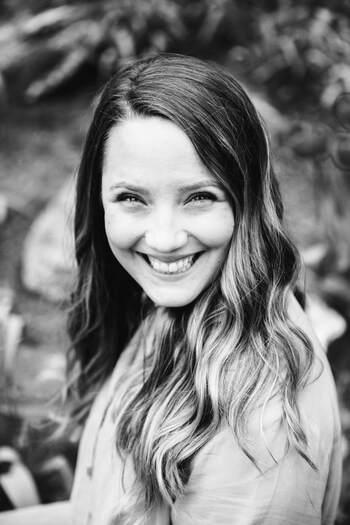
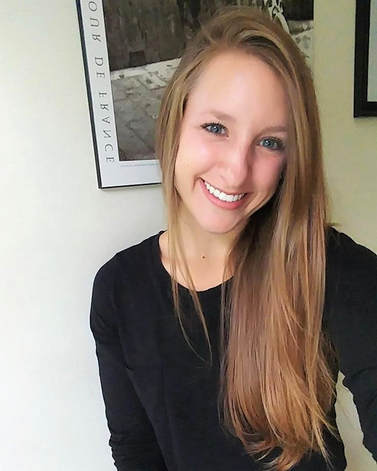
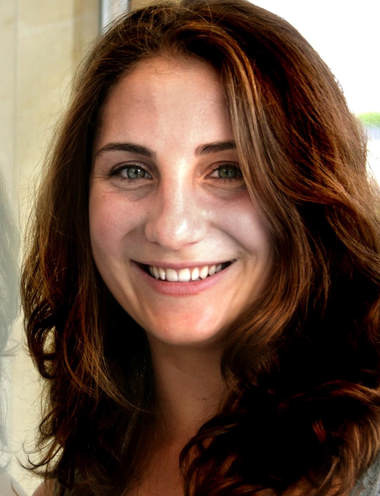
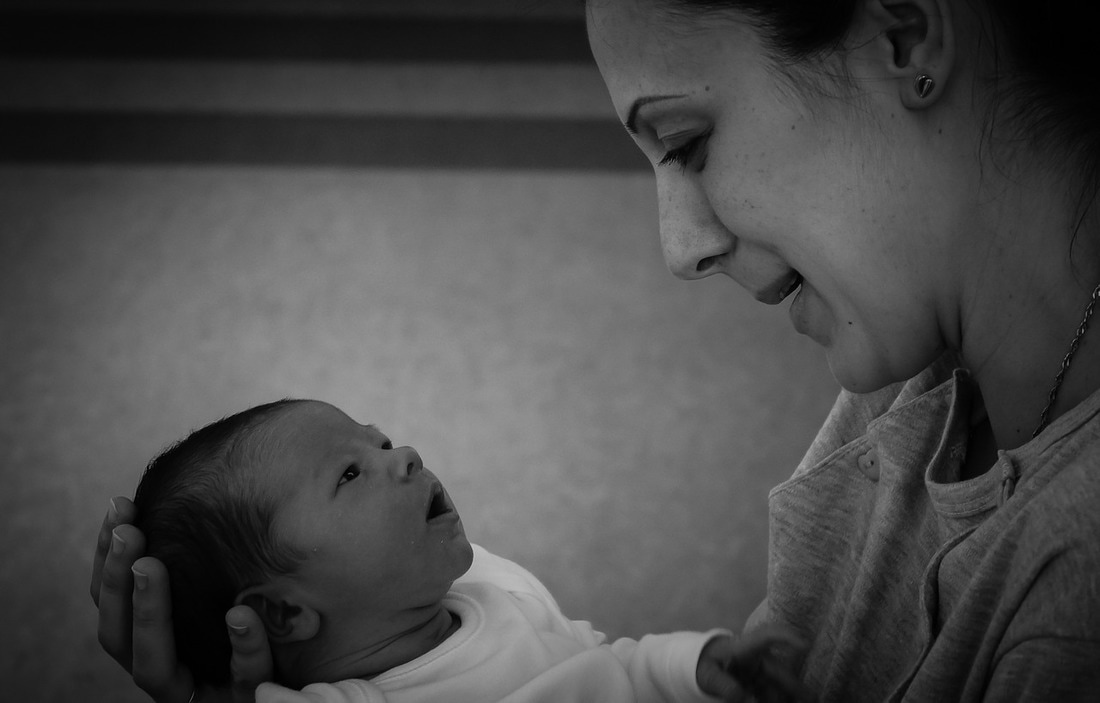
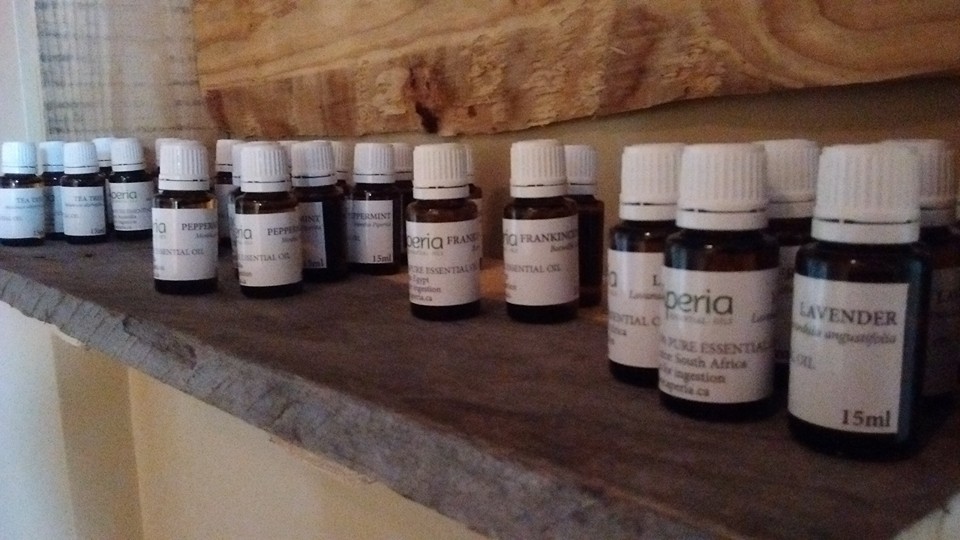
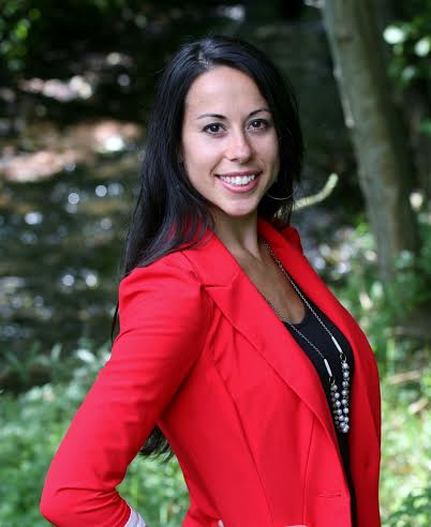
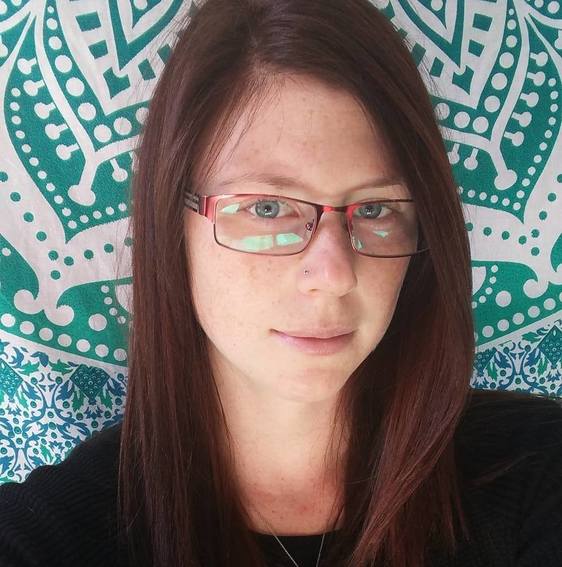
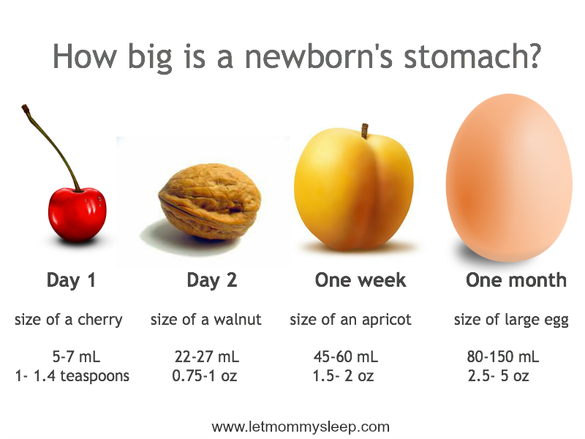
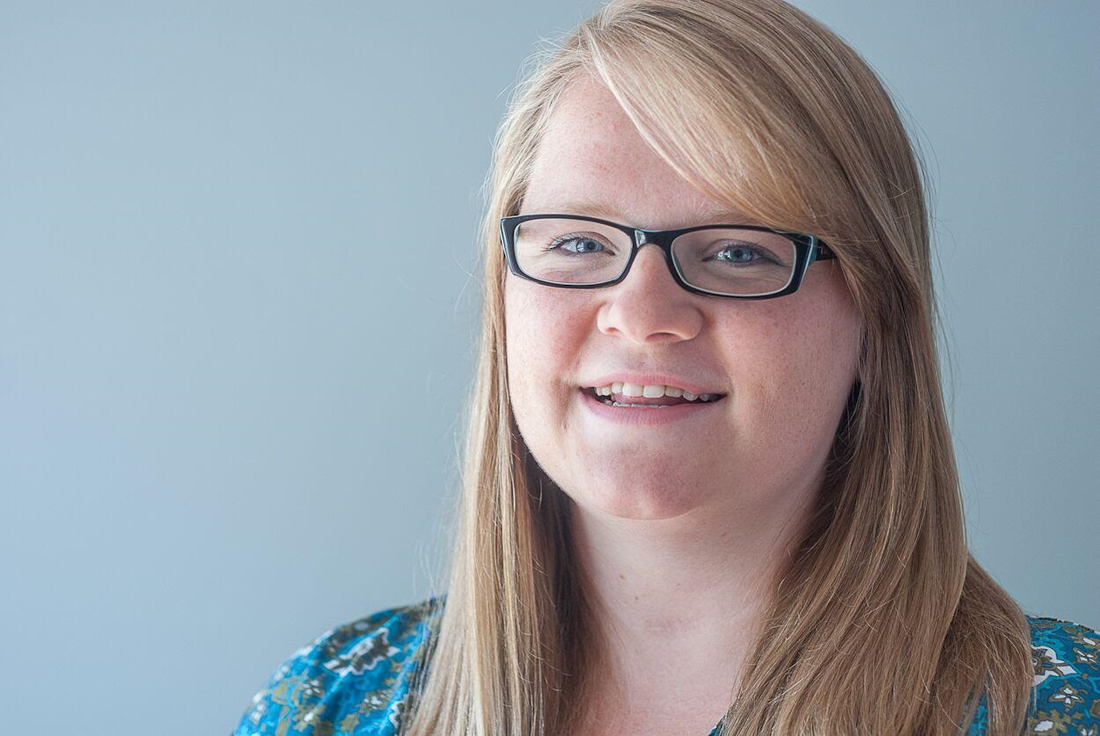

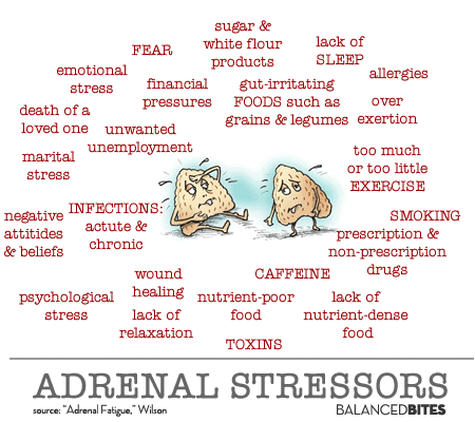
 RSS Feed
RSS Feed